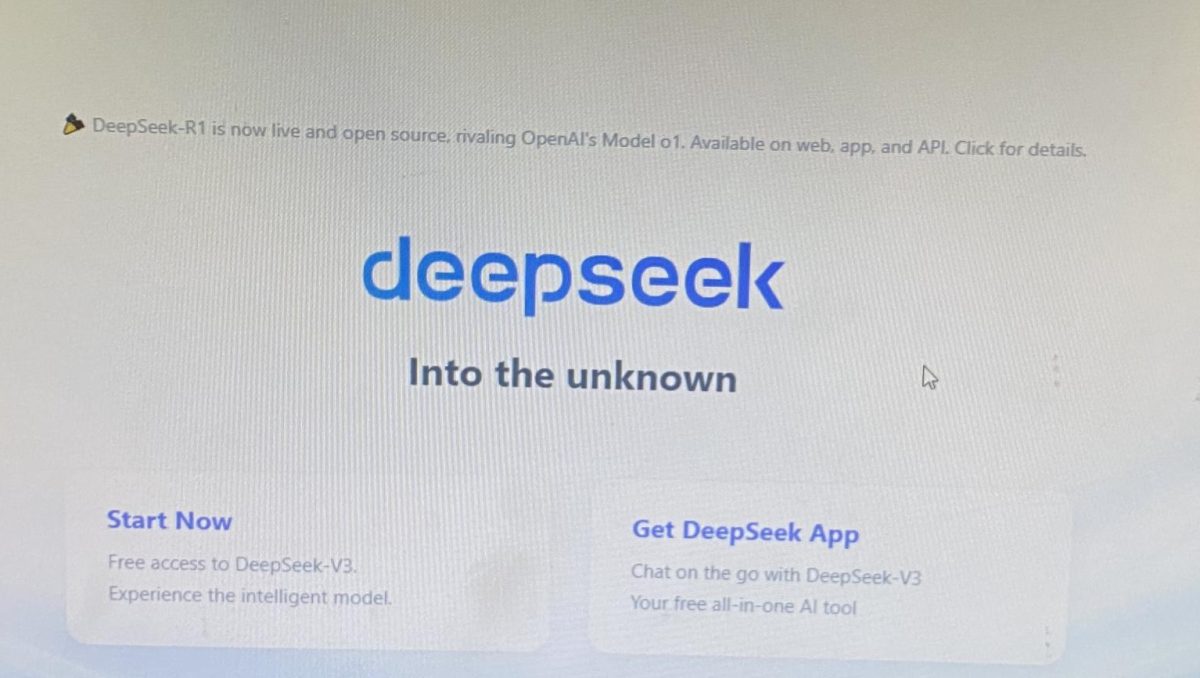The Chinese artificial intelligence app DeepSeek grabbed the attention of many Americans after news that it might rival American AI programs such as ChatGPT and Google. On Jan. 27, tech stocks plunged amidst the fear that China could surpass U.S. dominance in AI development. Nvidia, the leading global manufacturer of high-end graphics processing units, lost nearly $600 billion in market value. Furthermore, Nasdaq, which tracks the U.S.’s largest tech firms, plummeted more than 3%.
Nvidia made a statement after the drop. “DeepSeek is an excellent AI advancement,” they noted, “leveraging widely available models and compute that is fully export control compliant.”
The general public appears to have taken notice as well. DeepSeek’s release to the app store pushed OpenAI’s ChatGPT into second place, making DeepSeek the most downloaded free app in the Apple App Store.
DeepSeek is not only crashing tech stocks, but also catching investors off guard with its incredibly low development cost, marked at only $6 million. In comparison, Google, OpenAI, and other U.S. companies are on track to invest almost $1 trillion over the coming years in their products. Deepseek’s low-cost development and domination in the app store is fueling fears that China may pass the U.S. in the scale and efficiency of their AI investments.
“DeepSeek has taken the market by storm by doing more with less. In layman terms, they activate only the most relevant portions of their model for each query, and that saves money and computation power. This shows that with AI, the surprises will keep on coming in the next few years,” claims Giuseppe Sette, a president at an AI market research firm.
Deepseek’s success appears to be an unexpected outcome of the tech race between China and America. American export controls have limited the ability of Chinese tech firms to compete with the U.S. on the topic of AI. Nonetheless, Deepseek proves there may be another way to win, by revamping the foundation of the structure of AI models, and using limited resources efficiently. Deepseek claims its model was created with existing technology, along with open-source software that can be used or shared by anyone for free.
According to Wired, Deepseek founder Liang Wenfung has been compiling chips that form the backbone of AI- GPUs, or graphics processing units. Its model deploy chips made by Nvidia.
“Unlike many Chinese AI firms that rely heavily on access to advanced hardware, DeepSeek has focused on maximizing software-driven resource optimization,” explained Marina Zhang, an associate professor at the University of Technology Sydney.
However, even within the Chinese AI industry, Deepseek remains unconventional. The company started as Fire-flyer, a branch of one of China’s best-performing hedge funds, High-flyer. It quickly became prominent in China, raising around $15 billion. For years, High-flyer had been culminating GPUs and building Fire-flyer computers to analyze financial data. In 2023, Liang decided to stream the fund’s resources into a new company, DeepSeek, and develop general AI intelligence. The move worked, leading Zhang to note, “DeepSeek represents a new generation of Chinese tech companies that prioritize long-term technological advancement over quick commercialization.”
If Sputnik ushered in the Space Age, DeepSeek invoked the AI race. A curveball thrown into the loop of AI development, DeepSeek appears to have caught the U.S., and its tech sector, off guard. How America responds may add serious fuel to the AI race.




